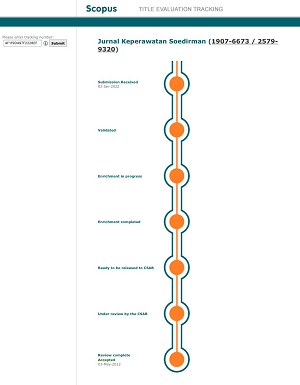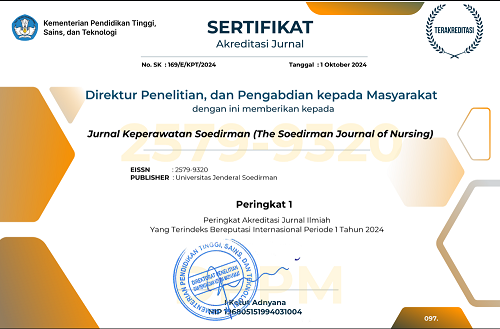Effectiveness of Healthy Lifestyle Education through Card Games for The Early Detection and Prevention of Cancer in Women: A Quasi-Experimental Study
Abstract
Cancer prevention and early detection efforts in Indonesia remain suboptimal, primarily due to limited public awareness. Therefore, this study evaluated the effectiveness of a card game–based educational intervention in improving women’s knowledge of early cancer detection and healthy lifestyle practices. The researchers employed a quasi-experimental design involving 70 women in Depok and Jakarta, with 40 assigned to the intervention group and 30 to the control group. Eligible participants completed a validated questionnaire before and after the intervention. The intervention group received an interactive education session using card games, while the control group received a standard informational brochure. The ANCOVA analysis revealed a significant increase in post-test knowledge scores in both the intervention and control groups (mean square = 190.301, p < 0.05). However, a significant difference in knowledge score improvement was observed in the intervention group (mean square = 23.618, p < 0.05). These findings suggest that card game–based educational interventions have the potential to improve public understanding of cancer prevention and early detection. It is recommended that larger randomized controlled trials integrate this card game into community health activities (such as school-based programs) to ensure broader engagement and the sustainability of cancer awareness initiatives.
Published
2025-11-12
How to Cite
NURAINI, Tuti Nuraini et al.
Effectiveness of Healthy Lifestyle Education through Card Games for The Early Detection and Prevention of Cancer in Women: A Quasi-Experimental Study.
Jurnal Keperawatan Soedirman, [S.l.], v. 20, n. 3, p. 185-192, nov. 2025.
ISSN 2579-9320.
Available at: <https://jos.unsoed.ac.id/index.php/jks/article/view/15916>. Date accessed: 13 feb. 2026.
doi: https://doi.org/10.20884/1.jks.2025.20.3.15916.
Section
Articles






.png)




_3.png)

 Kampus keperawatan unsoed
Kampus keperawatan unsoed  Published By Jurusan Keperawatan FIKES UNSOED
Published By Jurusan Keperawatan FIKES UNSOED jks@unsoed.ac.id
jks@unsoed.ac.id

